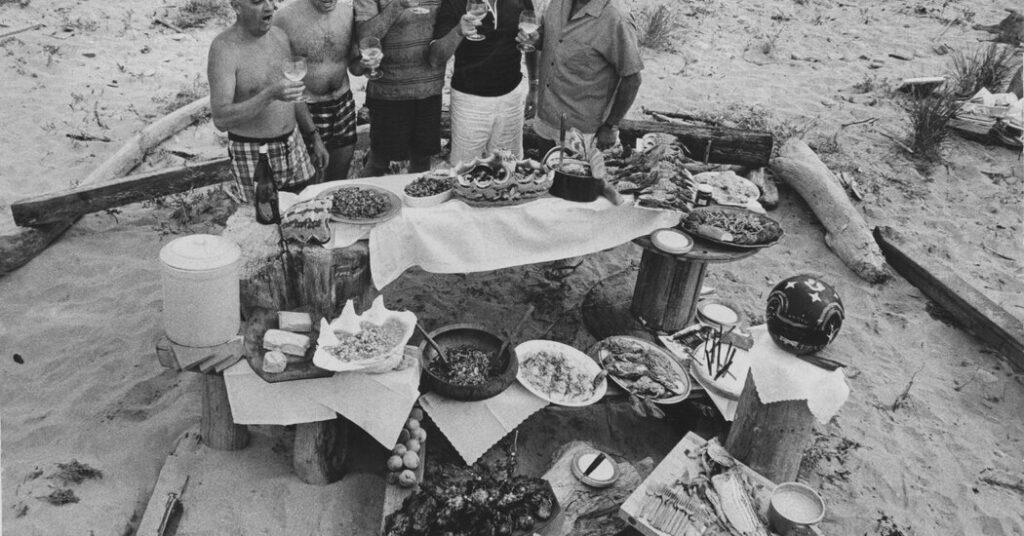Those many different ingredients all in one place represented a sort of open horizon — the possibilities just ahead.
Jacques Pépin putting the finishing touches on a plum tart in 1973. Pépin cooked for multiple French heads of state before coming to America, where he became a fixture on public television.Credit…Paul Hosefros/The New York Times
In France, in the late 1960s, a new style of cooking called “nouvelle cuisine” appeared. It was a liberation from the old, classic discipline of French cooking. It promised new ingredients, different techniques, more freedom and more creativity. This inspired me and blended well with what I was learning from my new country.
In America, we saw a renewed emphasis on domestic life, including organic gardening, home cooking and entertaining. We also witnessed a women’s movement at a time when the world of professional chefs was still dominated by men. Julia Child’s program had premiered on public television in 1962, and over the following decades, she made French food accessible to many. The Silver Palate, started by Julee Rosso and Sheila Lukins, and Ina Garten’s Barefoot Contessa went from being tiny storefronts in New York City and Long Island to hugely influential food brands and cookbook franchises by the 1980s.
In the 1990s, Julia joined me to teach at Boston University, and we spoke about trying to make the study of food both worthy of respect and part of a college degree. John Silber, the president of the university at the time, agreed. In 1991, the Master of Liberal Arts in Gastronomy degree was offered for the first time, and it is still taught today. The study of food in the context of history, an idea I had proposed at Columbia 20 years earlier, had finally been validated.
Today, more than 260 restaurants in the United States have Michelin stars, including 14 with three stars, the top rating. Chefs have moved up the social scale — now, somehow, we are geniuses. Our access to new food and new ideas is not limited by geography or range. But we should never forget how at the end of the day, we are shaped by the simple ritual of preparing and sharing meals. And we are all better for it.
Jacques Pépin is a chef, television personality, culinary educator and artist. In 2016 he created the Jacques Pépin Foundation, along with his daughter and son-in-law. His newest book, “The Art of Jacques Pépin,” will be published this fall.

